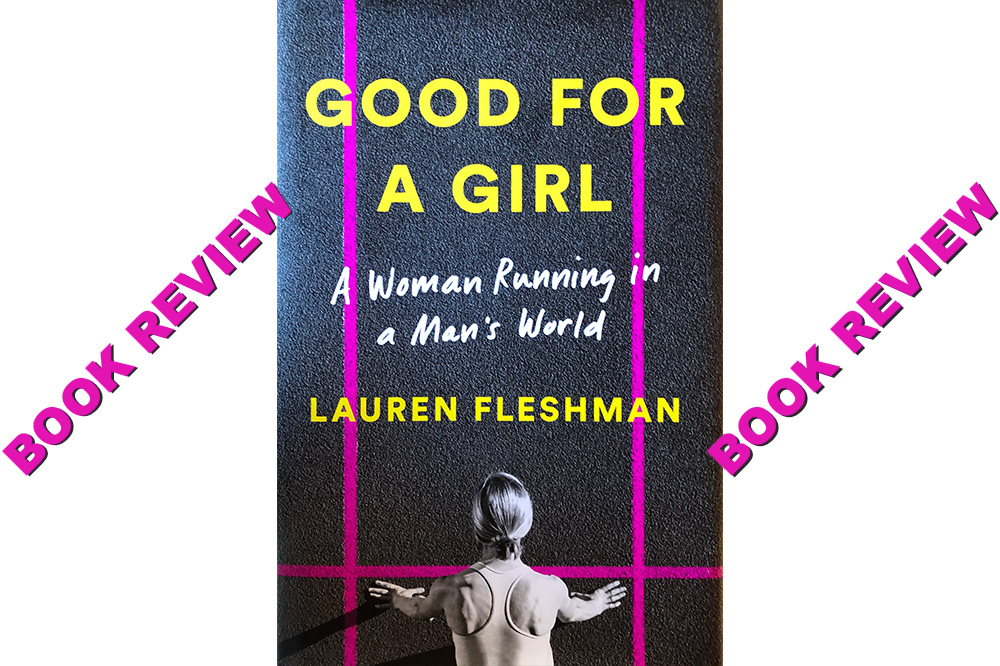
THIS IS A FINE BOOK, an important book. Every track fan should read it.
I was reluctant to review the book. Lauren Fleshman’s, “a women running in a man’s world,” does not need one more man to judge her. But since I have nothing but good to say about the book, I hope Lauren will forgive my lack of gender credentials.
The book basically is an account of Fleshman’s running career, the successes and failures, the elation and heartbreaks. What sets this memoir apart though is the quality of the writing. Fleshman is an experienced writer through her blog, Ask Lauren Fleshman, and her running magazine columns.
Success: After an impressive prep career at Canyon HS (CA), Lauren continued that success at Stanford, winning 5 NCAA championships, including 3 consecutive 5000s (2001–03). As a professional, she won the USATF 5000 in ’06 and ’10, and competed in three Worlds, finishing 7th in the 5000 at Daegu in ’11. But injury in ’04 and ’08 prevented her from reaching her most cherished goal — the U.S. Olympic team.
Heartbreak: Shortly before the ’08 Olympic Trials, Fleshman won New York’s Reebok Classic 5000 in under 15:00, one of the fastest-ever American times for the event; that established her as a favorite to make the Olympic team. Derailed by a nasty navicular injury, however, Lauren finished just out of the money at the Trials.
Sending notes to Shalane Flanagan and Kara Goucher, asking if they’d consider giving up their spots in the 5 (they had also qualified in the 10) is an indication of the level of her desperation — and telling us about this embarrassing interlude certainly adds authenticity to the narrative.
Failing to make the team also meant that Nike would reduce her contract which would affect her ability to make mortgage payments, etc. It reminds us there can be so much more drama involved of which the average fan is unaware.
Fleshman documents the difficulties she had with her sponsor, Nike, and her eventual switch to Oiselle. She also discusses the creation of Picky Bars, with the collaboration of husband Jesse Thomas and Stephanie Bruce, an enterprise which later sold to Laird Foods for $12 million.
Male athletes at the elite level train assiduously and make untold sacrifices to succeed in this sport. As do female athletes, of course. But women have considerably more to overcome.
As Fleshman reminds us, after puberty, a woman’s body naturally starts changing, adapting for future motherhood. Women athletes — particularly distance runners — struggle to combat these forces especially when their performances fall off. The feminine athlete triad: menstrual dysfunction, bone loss, eating disorders, conditions like amenorrhea, bulimia, anorexia, depression, and low energy become commonplace among woman runners as they try to avoid performance drop-off and, for professionals, maintain shoe contracts. And many women athletes have to endure “weight-shaming” by coaches or have coaches who know little about the menstrual cycle.
So, Mr. track fan, as you sit in the stands and watch your favorite women athletes sprint to the finish line, you might keep in mind those forces, challenges, and the additional struggles they’ve had to fight against and overcome, and thank Lauren Fleshman for pointing them out to you.
Good For A Girl, published by Penguin Random House, is available in bookstores and from online retailers including Amazon. Fleshman’s website, laurenfleshman.com, provides a convenient list of links for online ordering.
